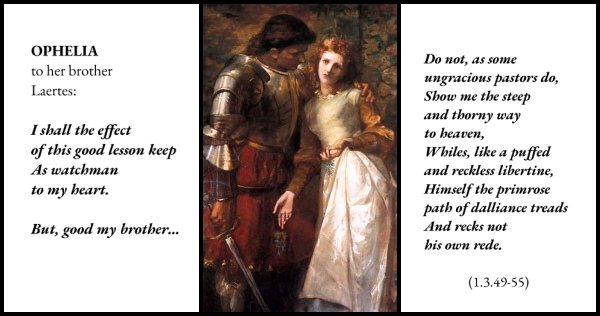Part 56: Ophelia to Hamlet: "You are as good as a chorus"

While Ophelia and Hamlet are watching “The Mousetrap,” Hamlet is very talkative with running commentary for the court and especially for Claudius, whose conscience he hopes to catch as the players reenact something like the circumstances of King Hamlet’s poisoning.[1] Ophelia says to Hamlet, “You are as good as a chorus, my lord.” (3.2.269) The chorus served in Greek plays in many ways, including to comment on the actions on and off stage, and to serve as the voice of fear or of conscience.[2] One way to read Ophelia’s statement is that she is simply describing what Hamlet is doing in the immediate context of the scene. But critics and scholars have always loved to explore how a line in a narrow context may apply to larger contexts. THOUGHT EXPERIMENT: What if Shakespeare uses Ophelia’s line to signal to audiences and readers that, in fact, one could read the whole play as if the very talkative Hamlet is a kind of chorus throughout, who sheds light on other characters, who at so...



